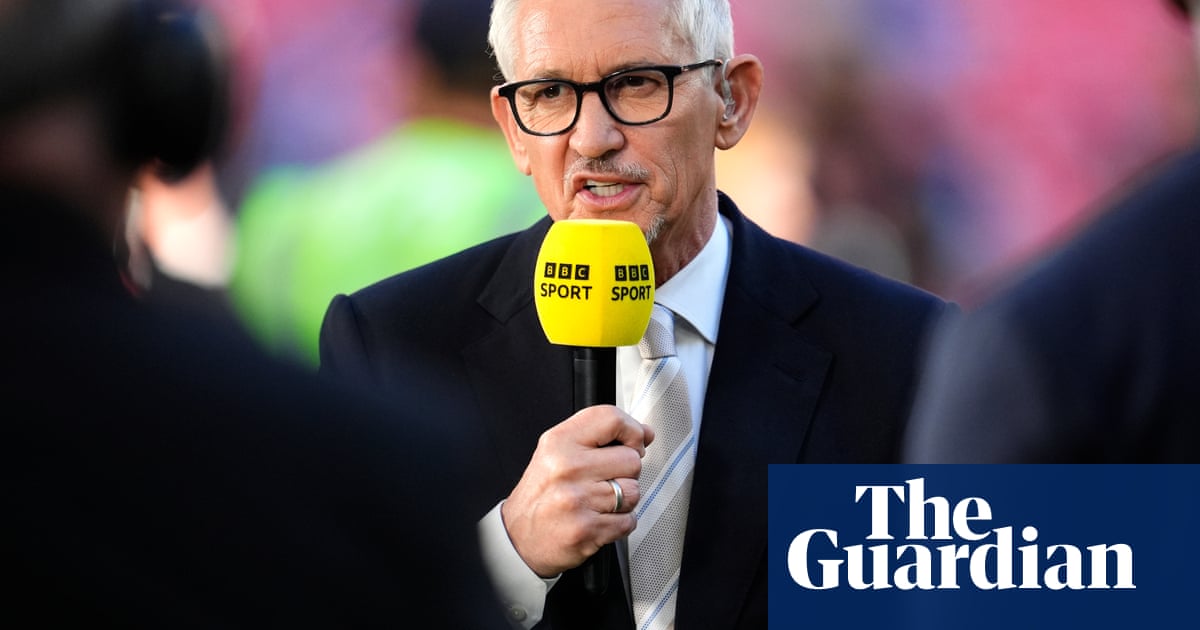Gary Lineker will leave the BBC at this weekend, it was announced on Monday, days after he apologised for amplifying online material with antisemitic connotations.
The presenter, the highest-paid on-air star at theBBC, had been scheduled to present the 2026 World Cup and next season’s FA Cup for the corporation.
However, amid continuing anger among BBC staff and executives over his social media post, it was confirmed on Monday that he would end his presenting duties with the broadcaster early, after fronting his lastMatch of the Daythis weekend.
Tim Davie, the BBC’s director general, said: “Gary has acknowledged the mistake he made. Accordingly, we have agreed he will step back from further presenting after this season.
“Gary has been a defining voice in football coverage for the BBC for over two decades. His passion and knowledge have shaped our sports journalism and earned him the respect of sports fans across the UK and beyond. We want to thank him for the contribution he has made.”
Lineker said: “Football has been at the heart of my life for as long as I can remember – both on the pitch and in the studio. I care deeply about the game, and about the work I’ve done with the BBC over many years. As I’ve said, I would never consciously repost anything antisemitic – it goes against everything I stand for.
“However, I recognise the error and upset that I caused, and reiterate how sorry I am. Stepping back now feels like the responsible course of action.”
It effectively brings to an end a decades-long relationship with the BBC, in which the corporation developed the former England striker into its leading sports presenter. His final Match of the Day will come 26 years after he took over from Des Lynam.
Last week, the 64-year-oldapologisedafter it emerged he had reposted a pro-Palestine video on social media that criticised Zionism and included an illustration of a rat. Lineker has 1.2m followers on the platform.
A rat is an antisemitic trope that was used in Nazi Germany to characterise Jews as vermin. Lineker said in a statement that he would “never knowingly share anything antisemitic” and had deleted the post “as soon as I became aware of the issue”.
However, the anger from the BBC’s most senior figures was clear. Davie had been facing calls all week to sack Lineker, who was paid £1.4m by the BBC last year.
He was confronted by Lineker’s actions at a high-profile speech about the corporation’s future in Salford. “The BBC’s reputation is held by everyone and when someone makes a mistake, it costs us,” he said. “I think we absolutely need people to be exemplars of the BBC’s values and follow our social media policy. Simple as that.”
The BBC will now begin a new era of coverage without Lineker. He will be replaced on Match of the Dayby Gabby Logan, Kelly Cates and Mark Chapman, who will share the presenting role from the next Premier League season.
It comes after a tumultuous few years in the relationship between Lineker and the BBC. In March 2023, hewas temporarily suspendedover comments he made criticising the Conservative government’s asylum policy.
In February this year, he was also among 500 high-profile cultural figures who called on the BBC to rebroadcast a documentary, Gaza: How to Survive a War Zone, calling it an “essential piece of journalism”.
The broadcasterremoved the documentaryfrom BBC iPlayer after it emerged that the film’s 14-year-old narrator was the son of a deputy agriculture minister in the territory’s Hamas-run government.
Danny Cohen, the BBC’s former director of television who has been a leading critic of Lineker’s actions and the BBC’s handling of the issue, said that it was right that he was leaving. However, he said the incident was “a symptom of the problem, not the problem itself”. He accused the BBC of other breaches of impartiality, including the Gaza documentary.
“All of this has been causing great pain to Britain’s Jewish community and consistently undermining the BBC’s reputation,” he said. “Weak leadership by BBC executives has allowed racism against Jews to fester in the organisation for too long. The time for truly effective change is now, starting with an unequivocal zero tolerance of antisemitism in any form.”
The producer Leo Pearlman also accused the BBC of “weak and ineffectual leadership” and said there was no victory in Lineker leaving “seemingly on his own terms”. He said: “After months of gaslighting British Jewry, the BBC must now decide: will it use the exit of its highest-paid and most visible purveyor of divisive rhetoric at best, hate speech at worst, as a catalyst for change, or confirm that Jewish concerns in Britain remain sidelined and ignored by our national broadcaster?”
